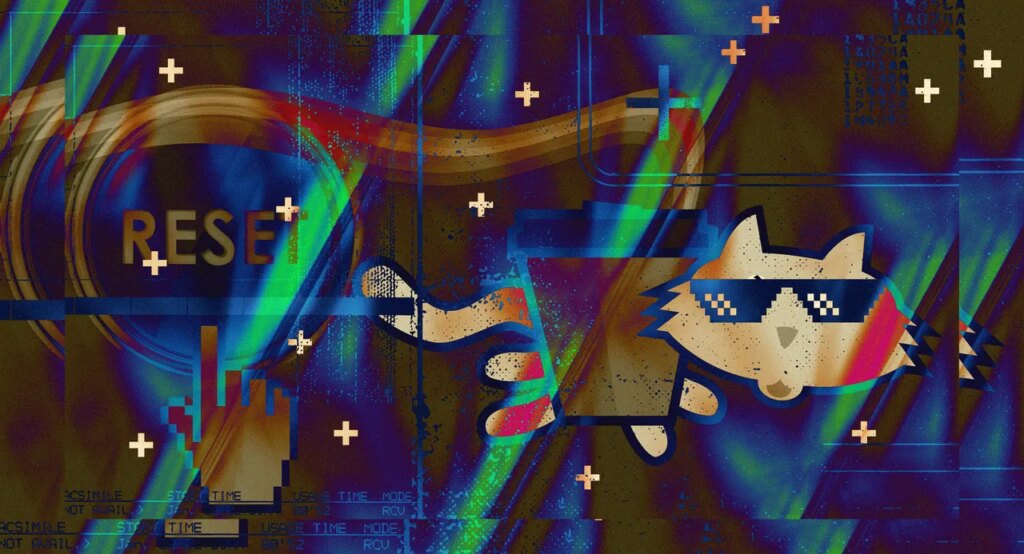Memes are getting a reboot. Not like a Marvel-is-trying-to-make-Fantastic Four-happen-again reboot. More like a rewind. The Great Meme Reset of 2026, as it’s being called on TikTok, demands that on January 1 all memes revert to their 2010s glory days. Bland “brain rot” and AI-looking memes are out; Big Chungus is in.
As with anything on the internet, the origin of the Great Meme Reset is hard to place. Most sources point to a March post from TikTok user @joebro909 that called for a whole new generation of memes to save the platform from the “drought” that had engulfed it in the spring. The post said nothing of a January 1 launch date, or a return to the memes of the last decade, but the idea was planted. Now hundreds of posts are discussing the reboot—and a return to the internet’s “dank” era.
Which implies, of course, that memes lack dankness these days. If anything, Gen Z– and Gen Alpha–fueled internet culture has prided itself on somewhat meaningless content like “6 7” and absurdist, seemingly AI-generated “Italian brain rots,” but after nearly a year of memes with little humanity or depth, a backlash has begun.
“Because of just how unrecognizable memes have become,” TikTok creator Noah Glenn Carter (@noahglenncarter) said in a recent video, “everyone has come to an agreement that on January 1, 2026, we are going to completely reset all memes and go back to the originals.”
When I reach Carter via email, the creator seems pretty convinced the reset idea could take off, and he plans to make more videos promoting it. “The memes we have now are called ‘brain rot’ for a reason,” Carter says. “The ones 10+ [years older], most of the time, had a story behind them. Or they at least made sense. Now it just seems like the more random and incoherent something is the more likely it is to become a meme.”
Even if you’re in the camp that understands memes like “6 7” have more significance than they’re given credit for, there’s still a sense amongst the Great Reset crowd that today’s memes are “oversaturated and unfunny,” says Know Your Meme editor-in-chief Don Caldwell. “In this context, brain rot memes are low-effort and nonsensical,” Caldwell adds, “and there’s a desire to return to the memes of the past that had a bit more substance.”
Substance, as ever, remains a relative notion. Nyan Cat perhaps didn’t have the substance of an Andy Warhol image, but both sought to comment on cultural moments—and both got people talking in a way 2025’s deluge of AI slop could never. Taken at face value, a call for a massive meme reset is also a call for organic internet culture, no matter how seemingly silly.
By pure coincidence, it seems, Twitter cofounder Jack Dorsey has also been feeling this pull toward a past free of slop-y internet culture. Just last week, he helped reanimate Vine, the ahead-of-its-time video-sharing app that died in 2016. diVine, as the new venture is called, aims to bring back 100,000 classic Vines as well as allow users to make new clips—provided they don’t use AI. Now in beta, diVine will block content seemingly created by LLMs. According to Evan Henshaw-Plath, the early Twitter staffer Dorsey entrusted with building diVine, the idea was to make something “kind of nostalgic.”
Speaking to TechCrunch, Henshaw-Plath said the idea behind diVine was to create something that evoked a time when social media let users have more control over what landed in their feeds, and “where you know that it’s a real person that recorded the video.”
Internet culture has always been rooted in nostalgia. Many of those early memes that Gens Z and Alpha long for were built from the things millennials remembered fondly: SpongeBob SquarePants, the music of Rick Astley. Pop culture in general moves in these cycles. Modern teens dress like extras on ’90s teen dramas like My So-Called Life; Gen X drew inspiration from the beats and the hippies.
Online fads cycle through much faster than those of previous generations, but the fact that internet culture has now reached a point where chronically online kids are longing for the memes of just a few years ago marks a serious shift. No one calling for a meme reset wants to reminisce on pre-internet experiences or the culture Gen X and Millennials are nostalgic for, they just want to experience life online the way the generation before them did.
Or, maybe they do. When I ask meme expert Ryan Milner, a professor of communication at the College of Charleston, about this, he reminds me that internet culture has always been steeped in irony, and “with something like the Great Meme Reset, you have to also question, is this an earnest longing to go back to the bygone days of 10 years ago when things were better, or is this just people having fun with that idea? Is it a meme in and of itself to talk about how memes have really gone downhill?”
Of course, it seems highly unlikely the Great Meme Reset could actually happen—at least not in any real or literal sense. Many posts on TikTok and beyond about the topic are already claiming the effort “will fail.” Most posts don’t say whether this will happen because the idea will fizzle or because reversing the momentum of the internet is impossible, but a combination of both seems likely.
Still, for Caldwell, it promises to be notable. “I’m just curious to see what really happens on January 1,” he says. “Will anyone actually follow through? Even if it results in a short-lived event, I think it will still be a day that goes down in meme history as a fun communal experiment.” Or an epic fail.
The post The ‘Great Meme Reset’ Is Coming appeared first on Wired.




